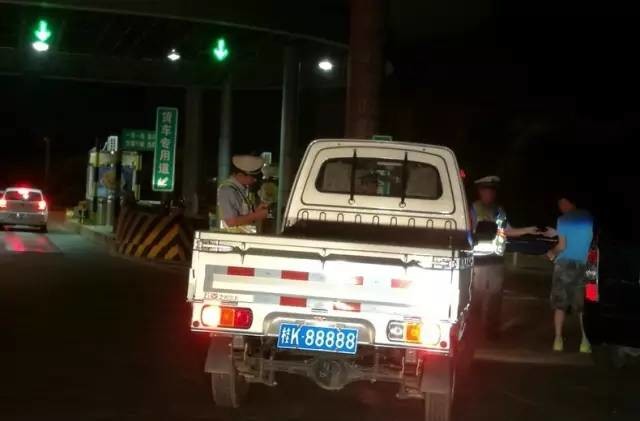The Lucky License Plate That Wasn’t

On August 8, 2008, the world’s focus was on Beijing, China, for Opening Ceremonies of the XXIX Olympiad. Numerically, that date would be 08/08/08 — and that isn’t a coincidence. The Chinese word for “eight” sounds similar to the word for “prosper” and, as a result, the number 8 has become lucky in Chinese culture — and the organizers of the 2008 Games were looking for some luck. That’s hardly the only example of the number 8 being used in connection with something Chinese, either — many flights going to China have flight numbers ending in 8, if you want another example.
Or you can go with the one pictured below.

That’s a pickup truck made by Wuling Motors, a brand you’ve probably never heard of unless you’re in China. The vehicle itself cost the equivalent of about $3,000 to $5,000. But for our purposes, the important part is the license plate — 88888. That’s a pretty lucky plate to get!
Except: luck had nothing to do with it. In China, it’s common for sought-after license plates to be put up for auction — and they fetch great prices. The New York Times investigated the subject in 2006:
At a government auction inside a dingy gymnasium, a young businessman named Ding walked away a happy winner the other day. Like everyone else, he was bidding on license plates and did not seem to mind that his cost $6,750.
For the same money, Mr. Ding could almost have afforded two of the Chinese-made roadsters popular in the domestic car market. His bid was almost 20 times what a Chinese farmer earns in a year, and almost 7 times the country’s per capita annual income.
And yet, in the auction in this manufacturing capital in southern China, Mr. Ding, who gave only his last name, could not even claim top price. The most expensive plate — AC6688 — fetched $10,000 on a day when officials sold hundreds of plates for a total of $366,500.
“I thought it was rather cheap,” said Mr. Ding, 30, a gold chain glinting under his open black sport shirt, as he walked off with the paperwork for APY888. “Since I have a nice car, I thought I should get a nice plate.”
That sounds absurd but it turns out, it isn’t. Many Chinese cities limit the number of local license plates in an effort to curb gridlock and reduce smog. In June of 2016, for example, Beijing ran a lottery for new plates; according to the Times, “only about one in 725 out of the 2.7 million applicants” were granted one. Cars depreciate, but the resale value of license plates may hold strong.
But that’s not the story of License Plate 88888 — or, at least, not the whole story. In the summer of 2016, a Chinese motorist acquired the plate for approximately $125,000 — many times more than the value of this car. And while that may turn out to be a good long-term investment — all you need to do is find someone richer and more superstitious — in the short term, as the Telegraph reported, he didn’t find the license plate to be lucky at all. Rather, it was notably unlucky: “his plan backfired when police stopped him eight times on the first day he took his pickup truck out on the road, as they believed the plate was not authentic.”
Well, at least it was eight times.
Bonus fact: License plate auctions aren’t unique to China. In the United Arab Emirates, car buyers put a premium on single-digit plates. In 2016, a Dubai developer spent, at auction, the equivalent of $9 million on a single-digit plate, per CNN. And that’s not a record — not even close. In 2008, a businessman from Abu Dhabi dropped $14 million for a license plate with the number 1.
From the Archives: The Lucky Iron Fish: A good luck charm in Cambodia which actually works.
Related: “Ken Jennings’s Trivia Almanac: 8,888 Questions in 365 Days,” by the Jeopardy! champ. May bring you luck, may not. Will arm you with lots of trivia.
